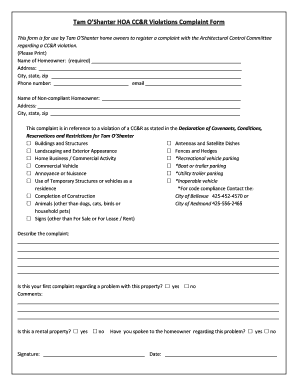

It even means that they can sue board members for bad decisions or sue HOA for selective enforcement. This means that a homeowner can choose to sue a board member due to disputes or perceived wrongdoings such as exceeding the limits of their authority or making unfair decisions.

One can always use their homeowners’ rights against HOA communities.

Homeowners also have the right to a fair hearing even if they have clearly violated the association’s rules. The board must send a written notice ahead of the hearing via first class mail. Homeowners Have a Right to Disciplinary HearingsĪ homeowner has a right to a hearing before the HOA takes disciplinary action, such as imposing fines or suspension of privileges. HOA boards may refuse access to documents that are bound by attorney-client privilege and those with pending litigation.ĥ. In some cases, though, homeowners may first need to submit a written notice, as well as pay for copying and postage costs. Access to budgets, expenditures, transactions will allow homeowners to see how their money is being used. Homeowners have a right to inspect these documents to see how the board is managing the community’s finances and assets. Homeowners Have a Right to Access Financial Reports, HOA Documentsīoard members cannot prohibit homeowners from requesting HOA documents including: They can provide documents to support these reasons, and reassure homeowners that this is for the benefit of the community.Ĥ. There may also be a limit on how much you can increase HOA fees each year.Īlso, board members should properly communicate the reasons for an increase. Depending on your governing documents, HOAs might need to give adequate notice to homeowners via certified mail. To prevent drastic actions from both the association and homeowner, the board must tread carefully when it comes to increasing HOA fees or levying special assessments. Keep in mind that the HOA board also has a right to place a lien on a delinquent homeowner’s property or even file for a foreclosure to collect unpaid assessments. Homeowners can take formal action, but they are still advised to continue paying their assessments. This can be a form of financial oversight and so that homeowners know where their money is being used. Homeowners have a right to question a sudden increase in monthly HOA fees or why the HOA is levying a special assessment. But that doesn’t mean that they will just pay any amount that the HOA charges them. Homeowners Can Question HOA Fees and Special AssessmentsĪs members of the community, homeowners are required to pay assessment fees each month. Also, board members should ensure that these new rules are still compliant with state and local laws.ģ. For instance, a majority vote may be required in order to change rules or implement new ones. However, make sure to check the governing documents for the procedure for proposing new rules or amendments. Homeowners can choose to take action if they deem certain rules as unfair, outdated, or discriminatory. It is within homeowners legal rights to change the association’s rules and regulations. Homeowners Have a Right to Change HOA Rules and Regulations However, if there is a lien on the property, the new owner will have to pay it off.Ģ.


 0 kommentar(er)
0 kommentar(er)
